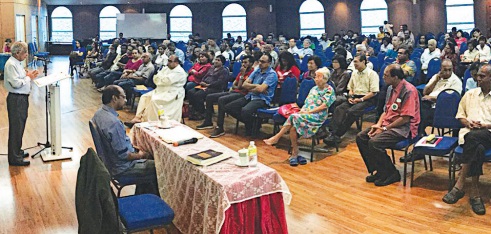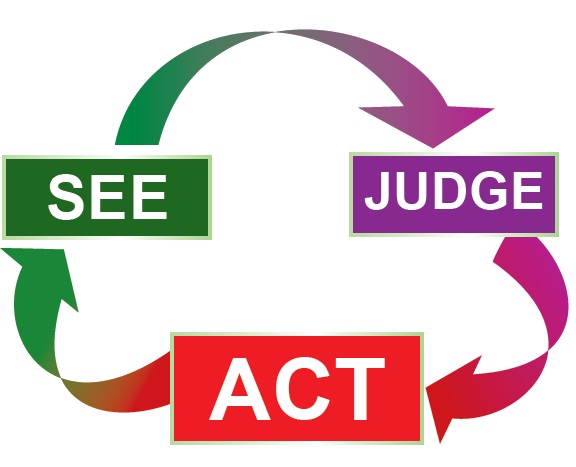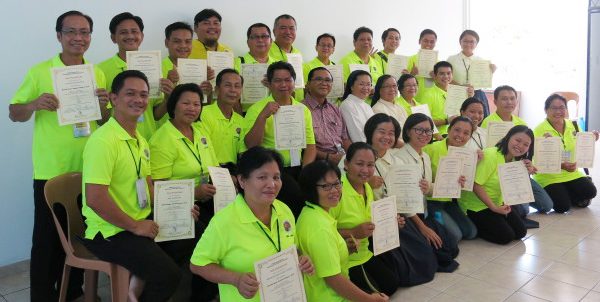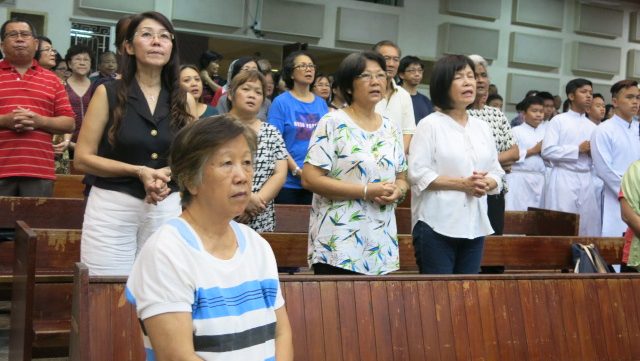The Church of Our Lady Of Lourdes organised a talk “ Malaysia’s Electoral System: A constitutional perspective” on April 22.
The main presenter was Emeritus Professor Datuk Dr Shad Saleem Faruqi (pic), a Professor of Law in the University of Malaya and currently holding the Tunku Abdul Rahman chair as Professor of Constitutional Law.
Also present was Archbishop Julian Leow, parish priest Fr Frederick Joseph, Alex from Pemantau the watchdog for Bersih and lawyer Sangeetha Jeyakumar who spoke on PACA
“Allowing the people to elect their governors is one of the finest achievements of democracy. The idea that the government must be elected and representatives be answerable, responsible and accountable to the wishes of society is a beautiful ideal,” said Emeritus Professor Datuk Dr Shad Saleem Faruqi.
Regrettably, he said, even in the liberal democracies of the North Atlantic, the above ideals of representative government are realised only imperfectly.
He added though democracy is the best form of government, there can be no denying that behind the folklore of democracy stand many myths and many utilitarian compromises. “Democratic” electoral systems often lead to undemocratic results.
Dr Shad Saleem cited that the electoral exercise in all democracies is so colossal, involves so many details, so many officials, and so much money that democracy’s undoubted virtues get sullied.
For example, he said, the 13 general election in Malaysia involved 240,000 workers, thousands of polling booths and a budget of RM400 million for the electoral exercise.
“How many millions or billions the political parties spent collectively is unknown because the disclosed election expenses are only for the campaign period and not for the expenses incurred and inducements offered before and after the campaign period. Regrettably, around the world elections have become an exercise in cheque book diplomacy,” he said, adding what happened in the USA during Barrack Obama’s campaign period. (According to published reports and campaign fianance data, the Obama campaign cost the incumbent president, the Democratic Party and the primary super PACs supporting his candidacy more than $1.1 billion in the 2012 presidential race.)
Coming back on the issue of our electoral system, Dr Shad Saleem highlighted that in Malaysia as in UK and India — it is “ single member, simple plurality system” meaning the candidate obtaining the most votes is declared elected.
He pointed out with graphics that in Malaysia, except for 1969 and 2013, the ruling coalition has secured absolute majorities of the votes polled at eleven out of 13 elections.
While explaining to participants on electoral law and that of other countries, Dr Shad Saleem summed by saying, “ There are no ideal systems and no quick-fix solutions to defects. The law walks a tightrope between what is ideal and what is workable; what is just and what is feasible. More than in other fields of law, the world-wide attitude is “that is best which works best.”
He spoke extensively on an impartial Election Commission:
— to draw up the electoral register impartially to ensure that no one is denied the right to vote
— No phantom voters or persons who have died
— No non-citizens are allowed to register Voters satisfy the requirement of residence in their constituency
— No one registers in more than one electoral district.
Fair principles for delineating constituencies
Dr Shad Saleem also stressed on fair principles for delineating constituencies as it should be about equal in population size so as to give reality to the principle of one person, one vote, one value.
“What is notable is that the rural weightage has ethnic implications because of the concentration of Malays in rural areas. But population patterns are changing. Rural areas are dwindling from 66 per cent in 1980 to 49 per cent in 1990. In time the ethnic significance of rural weightage may diminish,” he said.
He cited examples of malapportionment such as Kapar Parlaimentary constituency in Selangor having 144,369 voters as compared to Putrajaya’s 15,355 voters and Gopeng in Perak having 97,243 electors and Padang Rengas 28,572.
Sadly he said, almost all the re-delineation cases brought to court recently had failed.
He said wherever parliaments are involved in the drawing up of electoral districts, suspicions are aroused about the possibility of gerrymandering.
While calling for those aged 18 and above to be automatically registered as voters as per the current system, he said, this was to ensure that more come out to exercise their right to vote or more so to increase the proportion of voters.
The eligibility of voters
“We had 14.6 million registered voters in June last year who constitutes only 47.5 per cent of the 30.72 million population (2015 figure). If out of these 47.5 per cent eligible voters, one were to deduct 20-25 per cent voters who do not or could not show up, this leaves only 38 per cent of the population that participates in democracy’s show-case event! We must find ways to increase this proportion.”
Dr Shad Saleem is also of the opinion that bankrupts (those declared for standing as quarantors etc) should be allowed to vote besides the homeless, differently abled and criminals (need to be narrowed down as to who can vote). He also touched on rules for the eligibility of candidates, system of political parties before touching on pre-election and campaign period issues with emphasis on dissolution of parliament, caretaker government, rules about nomination and election, conduct of election campaigns, election expenses and election offences, right to speech, processions and assemblies, counting of votes and secrecy of the ballot.
In 1955, the campaign period was 147 days and then it became shorter to 60 days and now the minimum period is 11 days.
Election offences
Dr Shad Saleem said for Parliamentary elections in Malaysia, the maximum sum that can be incurred is RM200,000 under the Election Offences Act 1954, sections 17-27 and for state seats the limit is RM100,00.
“A glaring omission in the law in the UK and Malaysia is that while limits are placed on the expenditure of individual candidates, there are no statuory limits on how much a party can spend on its candidates. There is no control on what political parties may spend or receive by way of donation. There are no requirements for parties to submit audited accounts and to disclose the source and amount of donations received. The campaign expenditure limits apply to the campaign period, not to the period before or after,” he said.
This, he added, has aroused the criticism that electoral battles have degenerated into struggles between cheque books … giving of money, free transport, food and bribes to the electorate is forbidden.
But, he further added government after government gets around the law by promising or delivering “development aid” just before election.
He also stressed that under the Election Offences Act no bribery or undue influence or misuse of government machinery is allowed.
“Tampering with ballot papers, prevention someone from voting, permitting disqualified people to vote, arranging for phantom voters are all offences,” he said, adding racist and divisive speeches were illegal and any violation of the Act is a crime.
He stressed that enforcement of the law is the responsibility of the Commission.
“In Malaysia media monopoly is a serious problem. The internet is, however, open to everyone and provides an alternative, though not always reliable, source of information,” he said.
He told participants that the law requires the secrecy of the ballot and violating it would be a criminal offence.
Post election issues
Talking on Post-Election issues, Dr Shad Saleem explained on what is a Hung Parliament, the appointment of Prime Minister, summoning of parliament, double dissolution, crossing the floor, election appeals and vacancies.
He closed his presentation with the words, “I join you in fervent prayers that the forthcoming election will be incident free, that our racial and religious harmony will be maintained, and that the victors and vanquished will gracefully accept the results of the electoral process.”
He then took a few questions from the floor before the session came to an end at 5.15pm with Fr Frederick presenting him with a Certificate of Appreciation. — By Annie Cruez
Article reproduced from Herald Malaysia online











